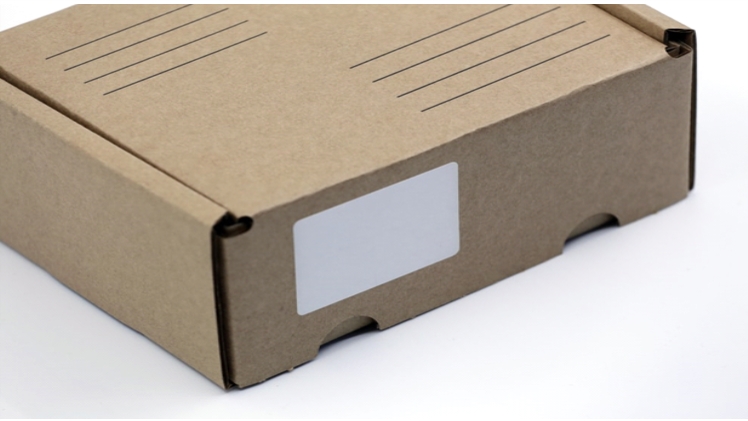The retail landscape has been transformed entirely by ecommerce. Nowadays, the range of products and services you can purchase via the internet is pretty much endless and includes everything from toiletries and clothing to electronics and groceries.
Multinational corporations have been operating successfully in the ecommerce sphere for many years, but Amazon, eBay, and other household names are not the only ones profiting from this shopping revolution.
In today’s digitally oriented world, large, medium-sized, and small companies alike need to consider setting up ecommerce platforms if they wish to maintain their competitive edge within a saturated retail industry.
Why eCommerce Is Essential for Small Businesses
An increasing number of small businesses are launching and running successful, profitable ecommerce stores. This part of the guide will focus on the reasons why ecommerce has proved itself so beneficial, lucrative, and in a sense, indispensable.
It Extends Your Reach
The scope and extent of the reach of an ecommerce store are incomparable to that of a brick-and-mortar establishment. You can achieve so much more through an online store that it may as well considered a different industry.
It doesn’t take an expert to understand why this is the case. Having your products and services tied to a physical location essentially limits your reach to customers who can conveniently access that location on foot or using some form of transportation.
eCommerce poses no such limitations. Its success depends mainly on the effectiveness of your marketing strategy and the quality of your website, as you can retail to an almost endless customer base.
There is no need to focus on the local market or think about whether your products would sell well in your area. There’s an international pool of customers to cater to, and small businesses can profit significantly from erased geographical barriers.
It Is a Highly Affordable Business Model
Another significant factor in favor of ecommerce is its affordability. The cost of launching and maintaining an online store is a lot lower than that of a brick-and-mortar one. Selling your products from a physical location entails significant initial and ongoing investments such as heating, electricity, cleaning, and rent. These quickly build up, consuming a vast percentage of your hard-earned profits.
Whether you’re just starting your small business venture or thinking of expanding into the ecommerce world, it is crucial to retain as much of your profits as possible and invest the money back into the growth of your brand.
Running an ecommerce platform is a much more financially viable route for small business owners who don’t want to spend their entire budgets covering running costs. This way, you’ll be able to keep the set-up costs to a minimum as well, enabling you to direct the majority of your resources into efforts that will contribute to your business’ expansion.
Ecommerce Stores Have Little to No Downtime
We saved arguably the most significant advantage of running an ecommerce store for last — these online stores don’t require your constant presence and supervision.
Either you or a colleague must oversee your physical store for as long as it is open. This is not the case with ecommerce stores, as you can have everything running smoothly on its own, entirely unattended for hours or even days at a time.
An ecommerce store can run virtually independently when it comes to its day-to-day operations, such as completing transactions and having customers browse through goods.
This means you can leave your store up and running throughout the night, on weekends, and on public holidays, maximizing your sales potential and the amount of revenue you’ll receive. Moreover, customers will be able to browse to their heart’s content at their own pace, which is not the case in physical stores regardless of their hours of operation.
Utilizing the Advantages of eCommerce to the Fullest
Now that we’ve covered some of the most prominent reasons to get involved in ecommerce as a small business owner, we can talk about the specific ways you can take advantage of this approach. In the following paragraphs, we outline a couple of strategies you can use to make the most of your ecommerce store.
Don’t Be Afraid to Get Creative and Innovative in Your Marketing Strategies
All the additional resources we talked about in the previous section of this guide can be invested into more innovative and creative marketing strategies, further increasing the reach and value of your brand.
It should go without saying that an active presence on various social media platforms is a must. This helps you establish a solid and robust connection with your target audience and keep you in their mind’s eye.
You should always be working on establishing a powerful brand image for your online store, using a whole arsenal of different marketing weapons, including images, videos, and textual descriptions of the way your business interacts with prospects and return customers.
There are many possibilities available when it comes to growing your brand, but a professional-looking website is perhaps the most important. For this, we recommend using your extra budget to hire a team of professionals.
The great thing about today’s digital world is that you don’t have to limit your search to your local area. You could even hire the best New York web design company and have them create a website that will appeal to a metropolitan audience.
Increase Your Exposure and Revenue Through Collaborations
Collaborating with others can be a remarkably effective marketing strategy. We’ve seen a massive expansion in the digital retail sector, so there are now ecommerce stores dedicated explicitly to representing multiple brands in a specific niche.
Suppose you’re just starting a small ecommerce business, or even just looking to increase your revenue stream. In that case, you can collaborate with a larger ecommerce platform and have your products and services featured there.
This way, you’ll be able to generate more interest and awareness of your brand while earning a percentage of the revenue when one of your products is sold on the platform.
Bottom Line
eCommerce is just another example of the fact that technological developments are continuing to accelerate. If you can remain up to date on these rapid changes and adjust your business model accordingly, you’ll be one step ahead of most of your competition at all times.
Success in the ecommerce sector depends on your willingness and ability to shift away from the traditional retail approach and adjust to the digital environment.
As a small-business owner, it is imperative to continue communicating with your customers and keeping your ear to the ground for ways you cater to their needs. An ecommerce platform gives you much more flexibility, so you can react in a timely manner whenever changes are necessary.
Being able to operate your business around the clock while working on growing and developing your brand and marketing your products to a worldwide audience is an incredible opportunity for any small business owner and one you should not pass up on lightly. Click here one of the top Magento partners to get more info.

